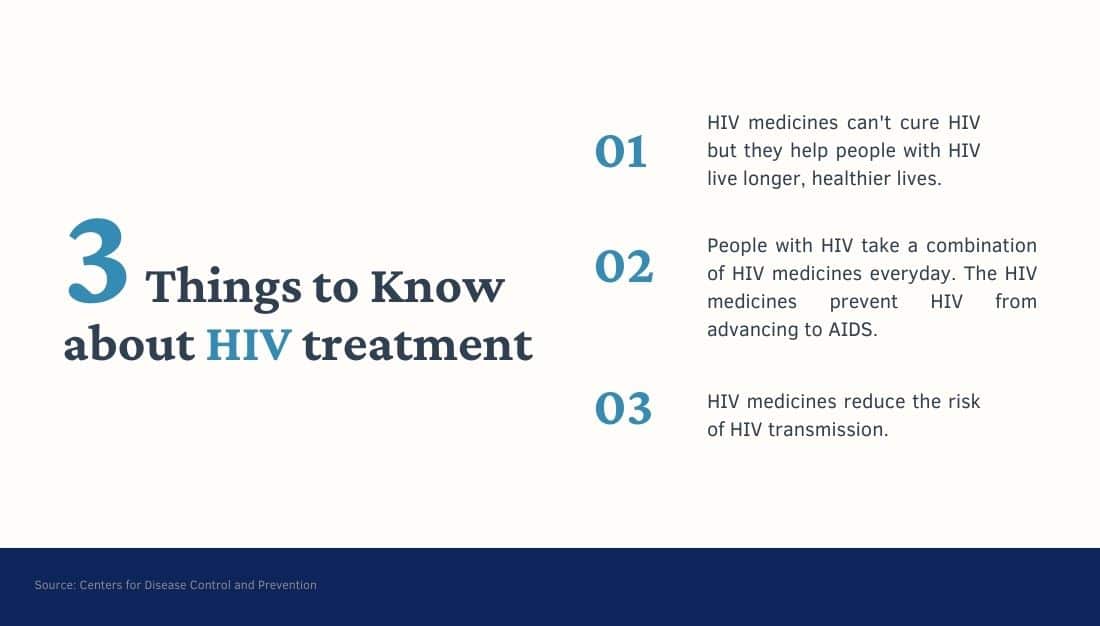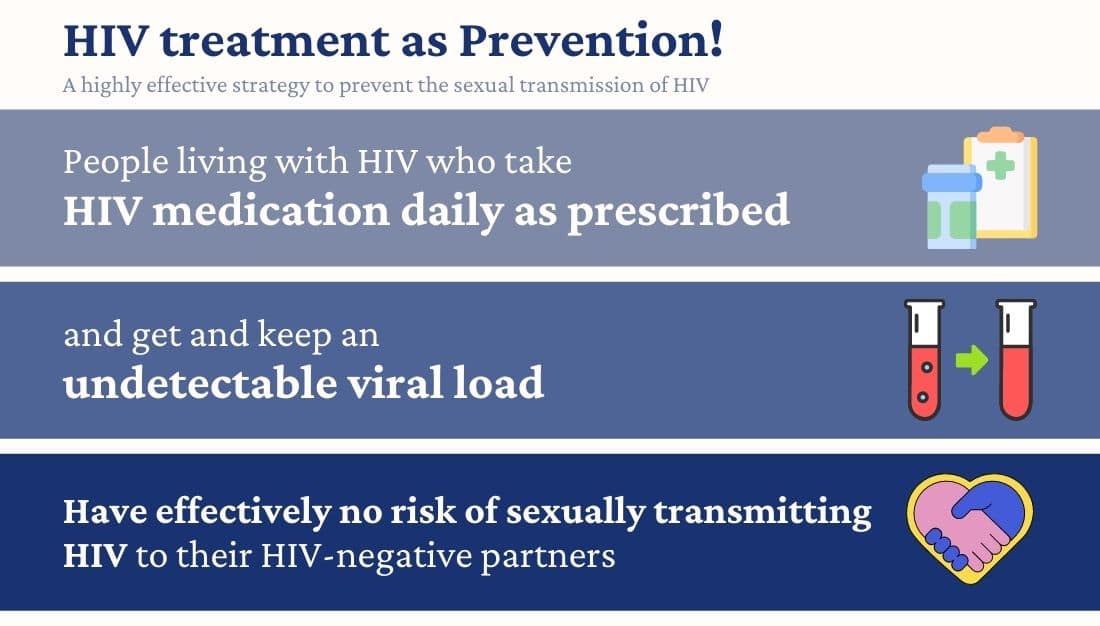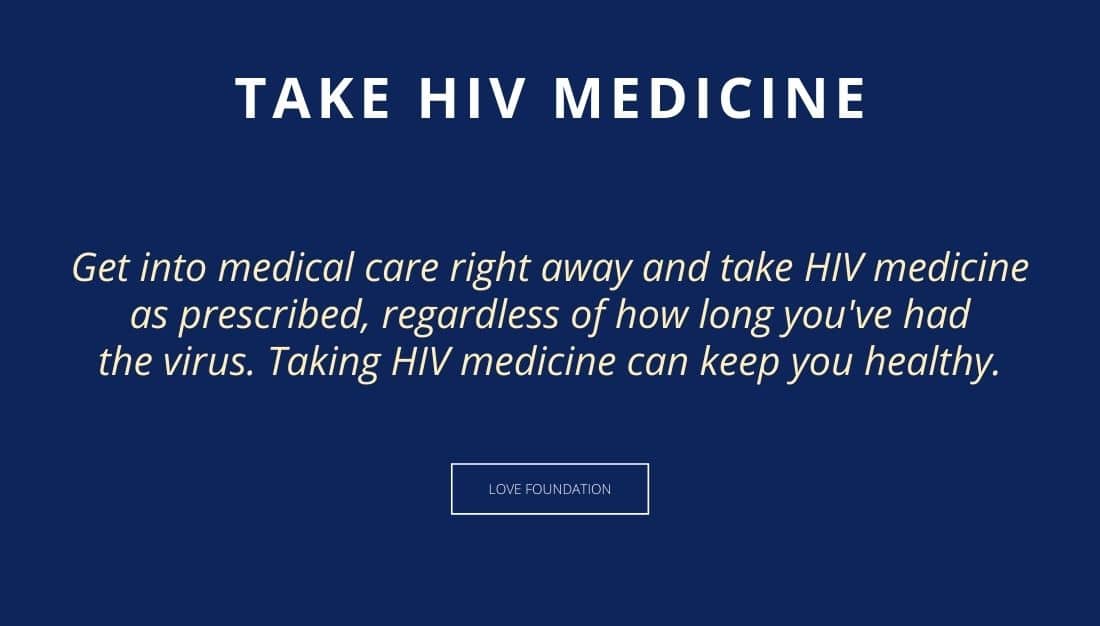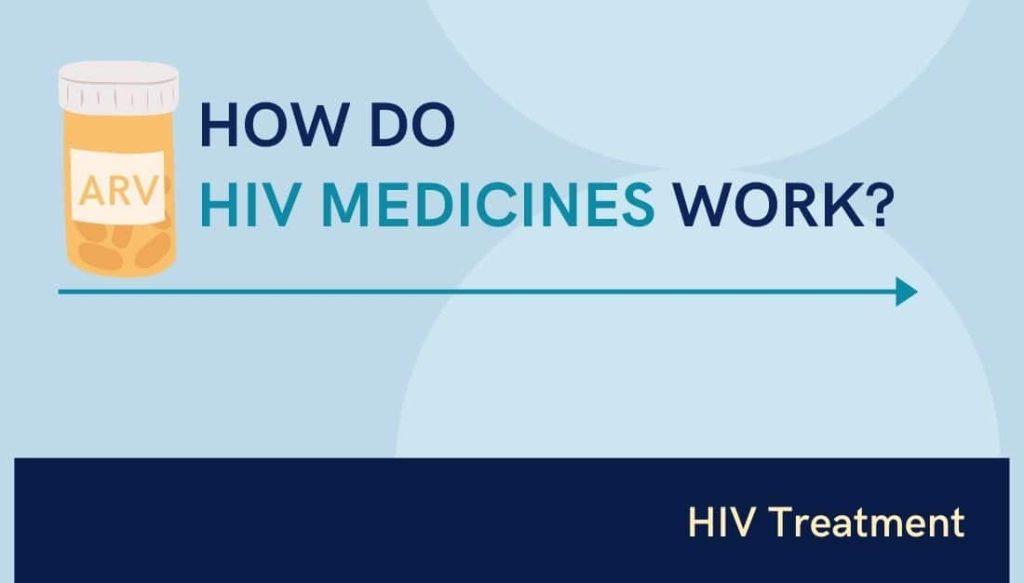Discover the latest advancements in HIV treatment, including antiretroviral therapy (ART), which helps manage the virus, improve quality of life, and prevent progression to AIDS. The treatment for HIV is called antiretroviral therapy (ART). ART involves taking a combination of HIV medicines (called an HIV treatment regimen) every day. HIV treatment involves taking medicine that reduces the amount of HIV in your body. There is no effective cure for HIV. But with proper medical care, you can control HIV. ART is recommended for everyone who has HIV. ART cannot cure HIV, but HIV medicines help people with HIV live longer, healthier lives. ART also reduces the risk of HIV transmission. Most people can get the virus under control within six months. Taking HIV medicine does not prevent transmission of other sexually transmitted diseases.

How do HIV medicines work?
HIV attacks and destroys the infection-fighting CD4 cells (CD4 T lymphocyte) of the immune system. Loss of CD4 cells makes it hard for the body to fight off infections and certain HIV-related cancers.
HIV medicines prevent HIV from multiplying (making copies of itself), which reduces the amount of HIV in the body (called the viral load). Having less HIV in the body gives the immune system a chance to recover and produce more CD4 cells. Even though there is still some HIV in the body, the immune system is strong enough to fight off infections and certain HIV-related cancers.
By reducing the amount of HIV in the body, HIV medicines also reduce the risk of HIV transmission. A main goal of HIV treatment is to reduce a person’s viral load to an undetectable level. An undetectable viral load means that the level of HIV in the blood is too low to be detected by a viral load test. People with HIV who maintain an undetectable viral load have effectively no risk of transmitting HIV to their HIV-negative partners through sex.
When should I start HIV Treatment ?
People with HIV should start taking HIV medicines as soon as possible after an HIV diagnosis. Medical experts recommend that people begin treatment for HIV as soon as they know that they are infected. Treatment is especially important for pregnant women, people who have other infections (such as tuberculosis or hepatitis), and people who have symptoms of AIDS
HIV medicine is recommended for all people with HIV, regardless of how long they’ve had the virus or how healthy they are.
Research suggests that treatment early HIV infection to start HIV medicines right away. (Early HIV infection is the period up to 6 months after infection with HIV.) with antiretroviral medicines has long-term benefits, such as a stronger immune system.
What if I delay treatment?
HIV will continue to harm your immune system. Which will put you at higher risk for developing AIDS and opportunistic infections. And you at higher risk for transmitting HIV to your sexual and injection partners.
What are the benefits of taking my HIV medicine every day as prescribed?
- vial of blood
- Treatment Reduces the Amount of HIV in the Blood
- The amount of HIV in the blood is called viral load.
- Taking your HIV medicine as prescribed will help keep your viral load low and your CD4 cell count high.
- HIV medicine can make the viral load very low (called viral suppression).
- Viral suppression is defined as having less than 200 copies of HIV per milliliter of blood.
- HIV medicine can make the viral load so low that a test can’t detect it (called an undetectable viral load).
- If your viral load goes down after starting HIV treatment, that means treatment is working.
- Continue to take your medicine as prescribed.
- If you skip your medications, even now and then, you are giving HIV the chance to multiply rapidly.
- This could weaken your immune system, and you could become sick.
- Getting and keeping an undetectable viral load (or staying virally suppressed)
- is the best way to stay healthy and protect others.
Treatment Helps Prevent Transmission to Others
- If you have an undetectable viral load, you have effectively no risk of transmitting HIV to an HIV-negative partner through sex.
- Having an undetectable viral load may also help prevent transmission from injection drug use. We don’t have data about whether having an undetectable viral load prevents transmission through sharing needles, syringes, or other injection equipment
- Having an undetectable viral load also helps prevent transmission from mother to baby. If a mother with HIV takes HIV medicine as prescribed throughout pregnancy, labor, and delivery and gives HIV medicine to her baby for 4 to 6 weeks after birth, the risk of transmitting HIV to her baby can be 1% or less and undetectable viral load reduces the risk of transmitting HIV to the baby through breastfeeding, but doesn’t eliminate the risk that mothers with HIV should not breastfeed their babies.
Taking Treatment as Prescribed Helps Prevent Drug Resistance
- Taking HIV medication consistently, as prescribed, helps prevent drug resistance.
- Drug resistance develops when people with HIV are inconsistent with taking their HIV medication as prescribed. The virus can change (mutate) and will no longer respond to certain HIV medication.
- If you develop drug resistance, it will limit your options for successful HIV treatment.

Does HIV medicine cause side effects?
HIV medicine can cause side effects in some people. However, not everyone experiences side effects. These symptoms are often temporary and disappear with time. The most common side effects are
- Nausea and vomiting,
- Diarrhea,
- Difficulty sleeping,
- Dry mouth,
- Headache,
- Rash,
- Dizziness,
- Fatigue, and
- Pain
Serious side effects can include swelling of the mouth and tongue and liver or kidney damage. If side effects are severe, the medications can be adjusted. By talk to your health care provider if your treatment makes you sick. Your health care provider may prescribe medicines to help manage the side effects or may change your treatment plan
Will HIV treatment interfere with my hormone therapy?
There are no known drug interactions between HIV medicine and hormone therapy.
Talk to your health care provider if you are worried about taking HIV medicine and hormone therapy at the same time. Your health care provider will help you stay healthy and ensure your hormone therapy stays on track.
What if HIV Treatment is not working?
Your health care provider may change your prescription. A change is not unusual because the same treatment does not affect everyone in the same way.
Sticking to my treatment plan is hard. How can I deal with the challenges?
Tell your health care provider right away if you’re having trouble sticking to your plan. Together you can identify the reasons you’re skipping medications and make a plan to address those reasons.
Talk to your health care provider about problems taking your HIV medicine.
- Problems taking pills. This can make staying on treatment challenging. Your health care provider can offer tips and ideas for addressing these problems.
- Side effects from medicine. Nausea or diarrhea can make a person not want to take their pills. There are medicines or other support, like nutritional counseling to make sure you’re getting important nutrients. This can help with the most common side effects.
- Treatment fatigue. Some people find that sticking to their treatment plan becomes harder over time. Make it a point to talk to your health care provider about staying on your treatment plan.
Plan ahead and keep extra medicine with you.
A busy schedule. Work or travel away from home can make it easy to forget to take pills. It may be possible to keep extra medicine at work or in your car. But talk to your health care provider first. Some medications are affected by extreme temperatures and it is not always possible to keep medications at work.

Find help for mental health or substance use disorders.
- Being sick or depressed. How you feel mentally and physically can affect your willingness to stick to your treatment plan. Your healthcare provider, social worker, or case manager can refer you to a mental health provider or local support groups.
- Alcohol or drug use. If substance use is interfering with your ability to keep yourself healthy, it may be time to quit or better manage it.
- If you need help finding substance use disorder treatment or mental health services.
Talk to your health care provider if you miss a lot of doses of your HIV medicine.
- Missing a dose. In most cases, you can take your medicine as soon as you realize you missed a dose. Then take the next dose at your usual scheduled time (unless your pharmacist or health care provider has told you something different).
- Missing a lot of doses. Talk to your health care provider or pharmacist about ways to help you remember your medicine. You and your health care provider may even decide to change your treatment routine to fit your health care needs and life situation.
Reference
HIV treatment
- cdc.gov/hiv/basics/livingwithhiv/treatment.html
A Comprehensive Guide to HIV and AIDS
- healthline.com/health/hiv-aids#hiv-and-aids
HIV Treatment: The Basics
- hivinfo.nih.gov/understanding-hiv/fact-sheets/hiv-treatment-basicsHiv-aids treatments
- stanfordhealthcare.org/medical-conditions/sexual-and-reproductive-health/hiv-aids/treatments.html

